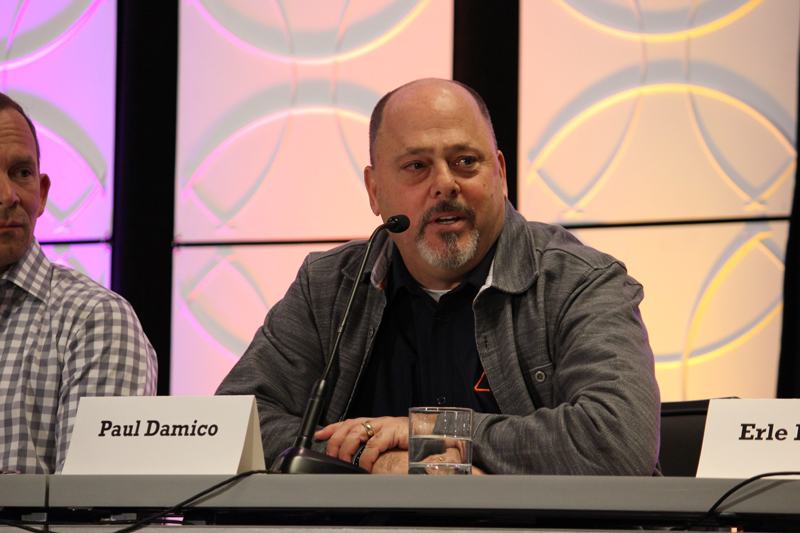Paul Damico joined Naf Naf Grill as CEO in 2017, only to find the Middle Eastern cuisine brand owned by Roark Capital wasn’t on the online map. “It was like the 1990s. We didn’t have a delivery platform, we didn’t have an app,” he told the audience at the Food On Demand Conference. But he decided the situation was actually a plus. “It was kind of refreshing. We took a step back and said, let’s take this time and build a really thoughtful strategy,” he said. He had seen plenty of restaurants rush into mobile, and saw some of them “flame out pretty quickly.”
Damico was among the panelists discussing how to identify and solve delivery challenges. Starting in 2017, Damico said there were “two non-negotiables to me. No. 1, we would partner with very few groups to execute and we would form true partnerships. No. 2, everything and I mean everything was going to be integrated into the POS from day one.”
Olo was the first partner and they launched exclusively on a desktop, not on a mobile format. “We ran that for six months and we let that stew for a little bit.”
Six months later Naf Naf partnered with Punch and launched an app and loyalty program. Again, “we let that stew for about six months.” And last year they partnered with DoorDash and launched delivery throughout their restaurants.
“So today, as I hear the horror stories out there, I feel like our delivery is working seamless,” he said.
Treating the driver as part of the team and investing in the physical restaurant space were two other important elements. Naf Naf spends up to $20,000 in each restaurant for a full second production line. “That for us means that we are ready for this 20, 30, 40 percent” of sales he predicts will eventually come from online delivery.


